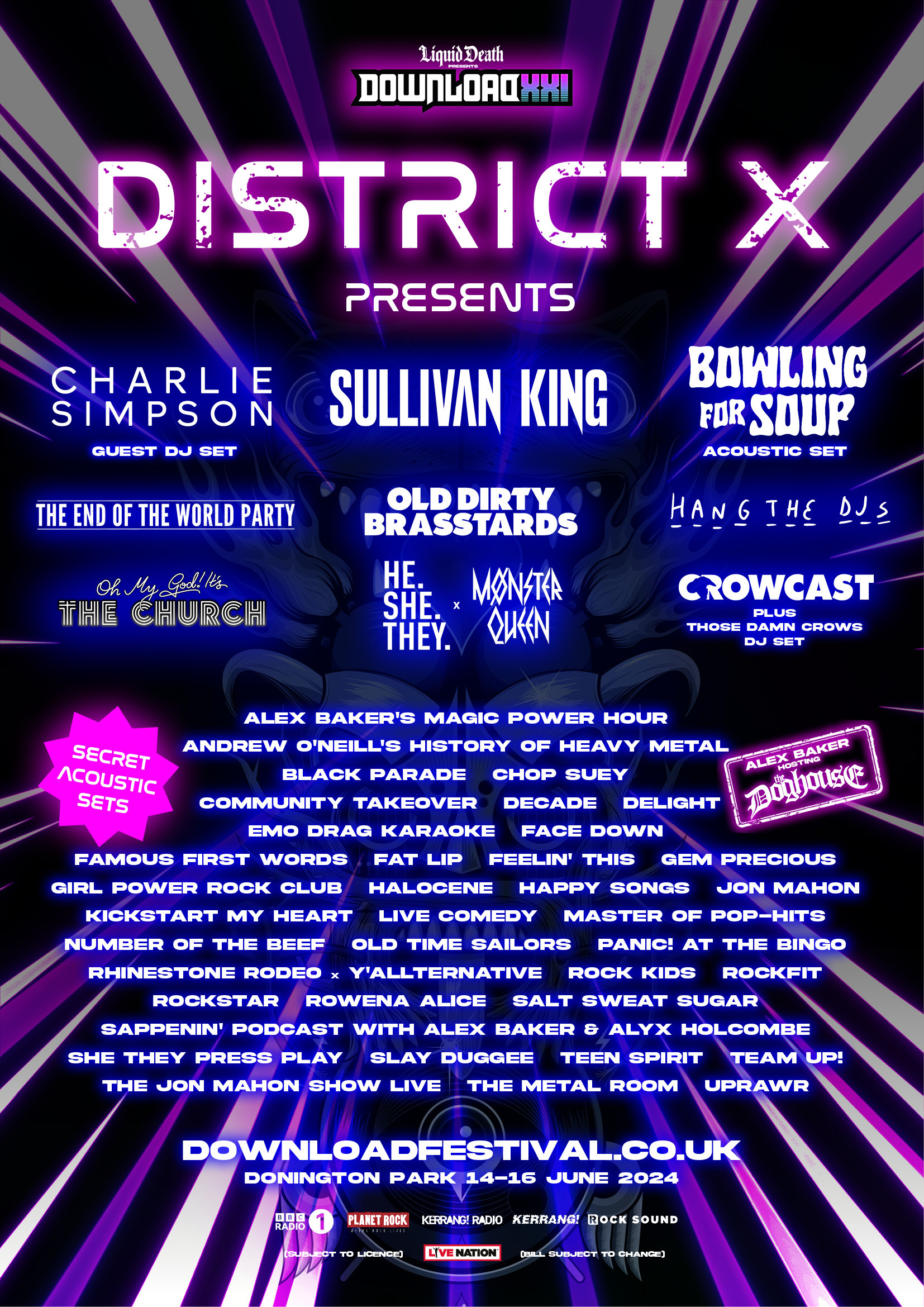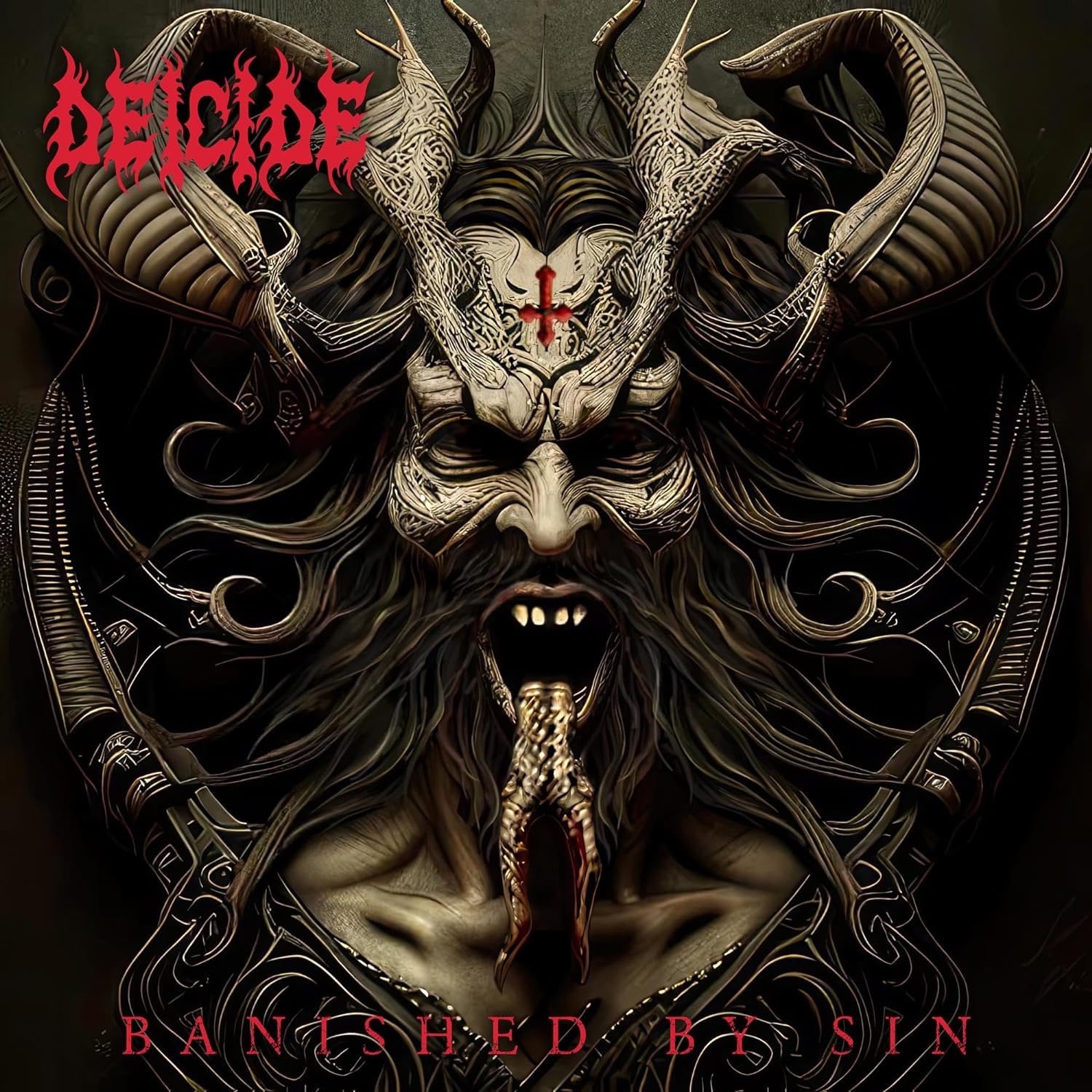Expectation can be a creative killer. Just look at the collective struggle of Axl Rose, Metallica, REM or Machine Head to follow a great (or run of great) album(s) and you’ll see that the demand to follow up classic material is far more draining, far more stressful, than crafting a debut offering. The reason for this is multifaceted but boiled down to its essence you can argue that the following factors cause the greatest degree of strife: pressure from fans hungry for new product, pressure from a record label hungry for more sales and the brutal hyperbole of the press machine raising the first two problems to fever pitch. David Bowie, however, has a canny solution to this problem – following the critically and commercially successful ‘reality’ album he simply disappeared. No interviews, no farewell tour, just… silence. How much of this was a plan is open to debate, not least because the man has remained markedly quiet, even in the run up to this surprise new album, but the result has been electric. Freed from the constraints of expectation David simply bided his time, gathered together long-time producer Tony Visconti and a number of old hands, including legendary guitarist Earl Slick ,and let his muse run free.
Despite the lack of intrusive press, its remarkable how quickly an aura of excitement built up when the misleading single ‘where are we now’ dropped on an unsuspecting public, followed by the fan-baiting artwork (the seminal ‘heroes’ cover blanked out front and back and reworked), both suggesting a nostalgic trip in the vein of ‘hours’. This sudden reappearance after so lengthy a period of unexplained inactivity was a masterstroke and, as I write this review, ‘the next day’ is respectably placed in the charts and rising, as more and more people flock out to buy the first new Bowie album (‘toy’ excluded) in a decade.
‘The next day’ is a difficult work. It should be easy to love – the spidery riff of the title track with its post-punk vibe and rocking chorus; the jazz-influenced and awkward time signatures of ‘dirty boys’ off-set by a ‘Fame’-referencing saxophone that snakes lasciviously out of the speakers or the acoustic guitar alt-pop of ‘the stars (are out tonight)’ which manages to sound both nostalgic and contemporary all at once, all point to an easy-to-digest work with plenty of high points, but, like much of Bowie, just as you settle into what you imagine the feel of the album to be, he twists the sonic path out of reach once again leaving you playing catch up to his twisted muse, always guessing and always working to digest the myriad elements he tosses into the mix, seemingly at will. Superficially, then, it is easy to love, but to really get to grips with ‘the next day’ you need time and space to appreciate its moods and shifts. Take the awkward beat of ‘love is lost’, for example, the off-beat lending the song a jilting edge that is perfectly augmented by Gerry Leonard’s driving stabs of guitar and Bowie’s hauntingly brilliant vocals. There is a grit in the voice, and while it remains comfortingly familiar, it is also a stark reminder of how much power exists in Bowie’s unique tones when he’s truly invested in a project.
Deserving of a paragraph all of its own, ‘where are we now’ is a song that many of us have been living with for weeks now. My first reaction (and perhaps many of you felt the same) was disappointment – it seemed so muted for a comeback. But listening to it now, partly in the context of the album and partly with the aid of familiarity, it’s one of the most simple and yet emotionally charged songs that has appeared in recent years. Redolent of a quiet walk down a haunted street, seeing the ghosts of your youth in the glossy surfaces of new construction, the climax – all muted drums and echoing strings – is heart-breaking and it takes a song-writer of Bowie’s calibre to say and evoke so much with a song so short, understated and delicately worked.
Sensitive to the abrupt mood swing of its predecessor, ‘Valentine’s day’ doesn’t come off all heavy handed, instead opting for a deft seventies feel, all backing harmonies and compressed, glam-influenced guitar. ‘If you can see me’, by contrast, takes the Eno soundscapes of the Berlin trilogy and pumps it full of ‘Earthling’-esque drum and bass attitude, the lyrics curt and slashing across the track’s thumping percussive backdrop. It’s a track that’s liable to divide opinion with its futuristic sheen, but it sounds as vital as anything David’s put his name too and it cleverly reminds the listener that little is stylistically beyond his reach. ‘I’d rather be high’ (a song title it’s disappointing to see the Daily Mail has yet to have a field day with) is a slab of perfectly formed psychedelia that drifts into the harder-edged ‘boss of me’ with its smooth bass and odd mix of sensuous sax and grinding guitar giving the track an unusual, rock-meets-soul feel. The bouncy ‘dancing out in space’ has a vintage rock ‘n’ Ziggy feel to it, the spacey guitar a delightfully incongruous throw-back to seventies atmospherics that must have been fun to conjure in the studio. ‘How does the grass grow’, in contrast, opens like the spiritual sequel to ‘new killer star’ with its aching melodies and layers of backwards guitar suddenly subsiding into a cut up, rhythmic blast that is both sublimely danceable and suitably dark, the chorus reclaiming the falsetto vocals once stolen by Blur and Suede and reasserting Bowie’s claim to have fathered much of the artier end of the Britpop scene.
The album proper (a special edition throws an extra three tracks into the mix) ends with three final songs – the rocking ‘(you will) set the world on fire’ with its rampant, Kinks-esque guitar riffs and whimsical vocal that suddenly heads off in the direction of Fleetwood Mac for the chorus; ‘You feel so lonely you could die’, on the other hand, is a Beatles-esque ballad (with hints of Roger Waters) complete with phased, echoing guitar and strings that throws everything but a certain sink into the mix as it reaches its climax and then ‘heat’ closes the set under layers of echoing synth and smooth bass, sounding for all the world like a slowed-down Sonic Youth being covered by Yes as David Bowie intones “and I tell myself I don’t know who I am”. It’s a dark, oblique ending to an album that hops ecstatically over huge chunks of Bowie’s career, dipping a toe in Ziggy here, a foot into Scary Monsters there, only to come up with an album that is so far ahead of the mainstream pop and rock curve in this decade of artifice that people will be dissecting its rich sonic tapestry for years to come.
The bonus tracks are a nice gesture for those keen on hearing as much as possible from their resurrected hero. Of the three tracks that grace the digi-pack, ‘so she’ is a brief slice of sunny pop magic; ‘plan’, in contrast, is a strangely dark (and similarly brief) instrumental that mixes sinister percussion with post-rock chords, but the highlight is the rock ‘n’ roll surge of ‘I’ll take you there’ with its biting riffs and clattering percussion. Perhaps not essential fare compared to the album itself, but more than worthwhile for anyone with more than a passing interest in the return of a legend.
Overall what makes ‘the next day’ special is that it turns its back on modern tricks and harks back to the days when Bowie would simply indulge his wildest fantasies in the studio while various musicians appeared to lend their talents as and when required – a trick that worked with stunning effect for the still-unparalleled ‘station to station’ album. Superficially ‘the next day’ is a fine rock record and for those who choose to enjoy it as such there are plenty of memorable hooks to draw you into the songs. However, for those who care to look deeper into the heart of the record it is almost as if David decided to craft a best of his material, only using all new songs. There are so many stylistic clues and references to enjoy, it becomes an enjoyable challenge simply to point out elements that previously surfaced on other Bowie works. And then there’s Bowie’s voice – energised and inspired, he has not sounded this good in a long time, and the twin peaks of the title track and ‘where are we now’ do a perfect job of highlighting both his sheer, visceral, rock ‘n’ roll strength and his frailty – a talent that the modern breed of pop stars seem to have auto-tuned out of existence. There will, of course, be those who analyse this record at the macro level, tearing apart every word and note and comparing it against David’s own back catalogue. To do so misses the point. ‘The next day’ is not the best record since … (name your own), it’s simply a very good record that stands proudly on its own, shorn of expectation and comparison by ten years of gentle silence. That Bowie has returned is a marvel, that he has done so with a record of this strength is a joy, and that’s all that truly matters.











Leave a Reply